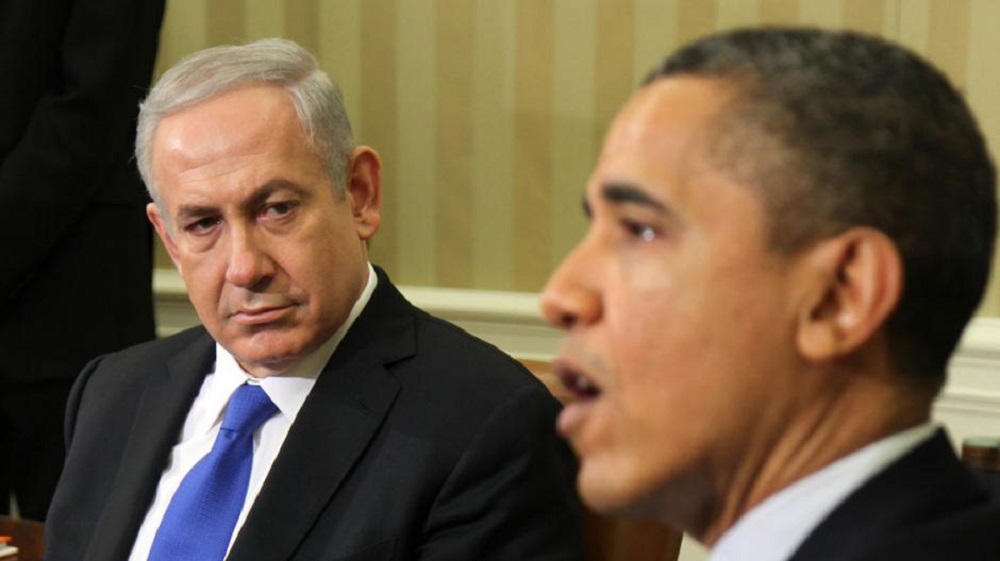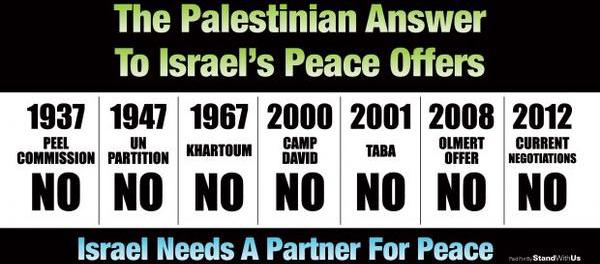The Geneva Accords – (Blessing or Betrayal)
If you were discussing the Geneva Accords with about 30% of the Israeli population, the likelihood is they would tell you that it’s the first step toward a new and better future in the Middle East. With great pride, they would maintain that it is the exact same Plan that was proposed by former Israeli Prime Minister Ehud Barak and former President Clinton at Camp David (and later at Taba) except that it confronts the two questions upon which the former Plans stumbled, namely, the status of Jerusalem and the “right of return.â€
They would commend the signers of the Geneva Accords for having resolved such issues as:
• Palestinian violence and incitement against Israel;
• the mutual recognition of an Israeli and a non-militarized Palestinian State (except for an armed Palestinian security force)
• the Palestinian “right of return;â€
• the recognition of Israel as a “Jewish Stateâ€;
• the transfer of the Temple Mount to Palestinian control (with Israel retaining sovereignty over the Western Wall);
• the division of Jerusalem into two capitals;
• the elimination of virtually all West Bank and Gaza settlements (with a land exchange for those areas retained by Israel);
• the Palestinians’ right to compensation (if they chose not to return to Israel);
• the Arab states’ right to compensation (for having “hosted” Palestinian refugees since 1948);
• the process for memorializing Arab villages and communities that existed before 1949;
• a land corridor between the West Bank and Gaza (with Israel maintaining sovereignty over the corridor, but the Palestinians controlling its administration);
• the establishment of a foreign military presence in Palestine (to maintain the peace and prevent acts of terrorism against Israel); and
• the release of most Palestinian prisoners.
–break–
They would maintain that the deal was fair and balanced because the Palestinians had renounced their “right of return” to Israel’s pre-1967 borders, recognized “Israel as a Jewish Stateâ€, and promised to have an international force present to keep the peace.
If, however, you asked the other 45% of the Israeli population who have formed an opinion on the subject, I suspect that you would hear something quite different.
They would tell you that the Sharon government is the democratically elected government of the State of Israel and that it was elected in a landslide victory to pursue a policy that is fundamentally incompatible with the Geneva Accords and they would suggest that the Geneva Accords are based upon delusion and fantasy because they conveniently dismiss the events that have taken place since the Oslo Accords were signed ten years ago.
They would argue that the Geneva Accords represent a suicide pact not a framework for peace; that they represent an agreement built upon the failed Oslo Accords, signed by two powerless leaders (one Israeli and one Palestinian) both of whom lacked the legal authority and the moral credibility to enter into such an understanding, and whose actions were na?ve or self-serving (at best) or treasonous (at worst). They would argue that the true intent of the Accords was to divide the Israeli public and bring down the Sharon government more than to constitute a serious plan that might force the Palestinians to compromise.
Separate and apart from asking how America would react if Ramsey Clark (LBJ’s former Attorney General) got together with al Qaeda in Geneva to produce and promote a Peace Accord (which, incidentally, would be treasonous under the Logan Act), they would say that the 2003 Geneva Accords bear a striking similarity to the 1938 Munich Accords and, if implemented, would result in the destruction of the State of Israel.
Opponents would remind you about the euphoria that surrounded the 1993 Oslo Accords – the concessions made by Israel in the name of peace that recognized the PLO as the Palestinian Authority and facilitated it’s return from exile in Tunisia; that allowed Palestinian Authority control over Gaza and the West Bank; that encouraged the world to give billions of dollars to the new Palestinian Authority; that limited the size of the new Palestinian militia, and that armed and trained that militia on the condition that the Palestinian Authority end terrorism and agree to live in peace with Israel……..and then they would remind you that the Palestinians broke every promise they made at Oslo. They would remind you that, when Arafat rode into Gaza from Egypt for the first time in July 1994, Israeli intelligence officers noted how low the car was riding and how high up in the seat Arafat was sitting. (As it happened, crammed into the Mercedes with (and under) Arafat were contraband weapons and terrorist operatives who were banned from entering the Palestinian territories).
They would remember those photogenic joint Palestinian-Israeli security patrols that ended when Palestinian soldiers turned their guns on their Israeli patrol partners, and they would recall (with chagrin) Arafat’s “revolving door policy†in dealing with jailed Palestinian terrorists and murderers. And with tongue in cheek, they would recall what the late King Hussein of Jordan said of Arafat, “He never came to a bridge he didn’t double-cross.”
Then their attention would turn to September 2000 when President Clinton reminded the world that “the peace of the brave is within our reach;†when former Israeli Prime Minister Ehud Barak offered the Palestinians wide ranging concessions that Arafat rejected at Camp David, Wye River, and finally Taba (concessions surpassed only by those recommended in the Geneva Accords) only to reap three years of the worst terrorism in Israel’s history.
They would review the corruption of Yasir Arafat, how he funds terrorism and diverts millions of dollars meant for his own people into his private Swiss bank accounts; how he encourages, funds and glorifies Palestinian youth who strap 22 pounds of high explosives around their bodies and blow themselves up on buses and in crowded malls in the belief that they will bring “glory†to their families, to their cause and to earn themselves a place in Paradise.
They would ask you to watch Palestinian television, or to walk down any Palestinian street (named after a “martyrâ€), or to visit Bir Zeit University in Ramallah to hear debates between Hamas and Islamic Jihad (on the one hand) and Fatah (on the other) on who has killed the most Israelis since the second intifada began, or to visit any Palestinian mosque or school to see how Palestinian “martyrs†are being honored in textbooks and on posters and how a generation of Palestinians has been weaned on and lost to a culture of death……..and then they would ask how on earth peace can be built upon such a foundation of hatred?
They would remind you about a Pori poll undertaken last September when 59% of Palestinians stated that they would remain dedicated to the destruction of Israel even after a Palestinian State was declared; and that only 26% wanted to give up the armed struggle; and then they would point out the names of Palestinians who were dragged from their homes (in front of their wives and children) and murdered by Palestinian death squads for working with Israel against terrorism.
They would ask you to look at the Geneva Accords to see if you could find one single solitary demand for Palestinian reform (ensuring that any future Palestinian State would not be a terrorist State and a source of regional instability)?
They would wonder why Israel should pay compensation to Arab nations “hosting†Palestinian refugees since 1948 when 850,000 Jews were expelled from Arab lands in 1948 and had to forfeit their property to those same countries?
They would point out that, in the West, concessions are taken as proof of a desire to settle a dispute, while in the Middle East, concessions (such as those made at Oslo and Geneva) are seen as signs of weakness and as a signal that “terrorism really works.†And then they would remind you of the consequences of such actions and how Syria’s state-owned media recently interpreted the Geneva Accords as a sign of Israel’s weakening resolve. (The newspaper Tishrin, the ruling Ba’ath Party’s mouthpiece, claimed that the Accords showed that the Intifada was forcing the “Zionist enemy” to look for a way out of its “quagmire.”)
Opponents would ask – if the Oslo Accords were considered by the Palestinians to be a “Trojan Horse,” (or a deception, according to comments made by the late Palestinian leader Faisal Husseini to the Egyptian newspaper Al-Arabi on June 24, 2001) and part of the long-range plan to dismantle Israel “in phasesâ€, why should Israel now trust the Geneva Accords that give the Palestinians even more concessions in return for the same promises broken five times previously?
They would wonder why Israel is required to start withdrawing from the West Bank and Gaza immediately when no time element has been set to disband the PLO terrorist infrastructure.
They would question why the Accords detail the weapons the Palestinian State Security Force can possess yet allow the list to be changed at any time without Israel’s consent?
They would worry about how Israel could possibly be secure where it was left with absolutely no strategic depth (after virtually all settlements were removed and Israel returned to what Abba Eban once called “the Auschwitz borders”) except for two isolated early-warning stations in the West Bank.
They would question the wisdom of transferring Israel’s national security to an untested, unfriendly international peace force in Palestine comprised of the European Union, the United Nations and others who have a long history of anti-Israel bias, and they would suggest that the right to conduct Israeli Air Force training exercises over Palestine was hardly a sufficient guarantee of Israel’s national security needs (especially if the international force proved itself incapable of stopping Palestinian terrorism). All this, they would argue, is not security; just another name for national suicide.
They would question the basis upon which the Palestinian signatories of the Geneva Accords could relinquish the Palestinian “right of return” to their pre-1967 homes in Israel, when the majority of mainstream Palestinian society continues to see Israel as “Occupied Palestine?â€
They would especially question how Palestinian negotiating team leader Khadoura Fares (immediately after signing the Geneva Accords) could proclaim to the London Arabic daily al-Hayat that the Palestinians “did not explicitly waive their right of return†under UN Resolution 194, while, at the same time Sari Nusseibah, a Palestinian leader, proclaimed to the world press that the issue of the Palestinian “right of return†had been resolved?
Opponents of the Accords would wonder why important questions such as how many Palestinian refugees will be permitted to settle in Israel, how the issue will be decided, and who will make the final decision are left unanswered. They would see it as a trap requiring Israel would honor its commitments to accept a fixed number of Palestinian refugees annually after which the Palestinian government would use international pressure to demand unconditional enforcement of Resolution 194 which would literally “open the flood gates†and drown the Jewish State.
And if the issue of the “right of return” was really resolved at Geneva, then why would Arafat advisor Hani al-Hassan (a former Palestinian Authority Interior Minister) proclaim to the Fatah leadership in the Rashadiya refugee camp in Lebanon (one week after the Accords were signed): “We are committed to the “right of return†according to UN Resolution 194 (“that refugees wishing to return to their homes and live at peace with their neighbors should be permitted to do so at the earliest practicable date,” and also that compensation will be paid to those choosing not to return). Be assured that the hills of Palestine await you. In 2007, this phase will end and you will fill up Palestine.”
Opponents would ask why they should believe Palestinian promises in the Geneva Accords to the effect that they recognize Israel “as a Jewish State†when the contents of the Accords only speak of “a State” (with no reference to its Jewish character other than on the cover of the Accords). And why, during his London interview with the Arabic language paper al-Hayat did Khadoura Fares contradict himself and insist that there was “no recognition of Israel as a Jewish State at Geneva?â€
If this is a game, I fail to see the humor in it. The Palestinian Authority has been publicly praising the Geneva Accords while sending clear statements of rejection to its people regarding the only clause that obligates them – conceding the “right of return†– which has been worded ambiguously to “preserve Palestinian rights.â€
At Geneva, Carter praised the Accords and suggested that if he had been re-elected in 1980, he could have established something similar to the Geneva Accords. “Had I been elected to a second term, with the prestige and authority and influence and reputation I had in the region,” he said, “we could have moved to a final solution.”
Perhaps there is more truth in Carter’s innocent remark than we care to believe.



